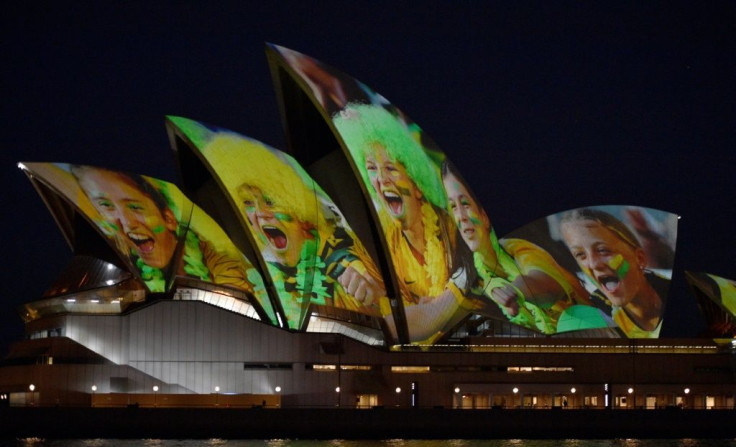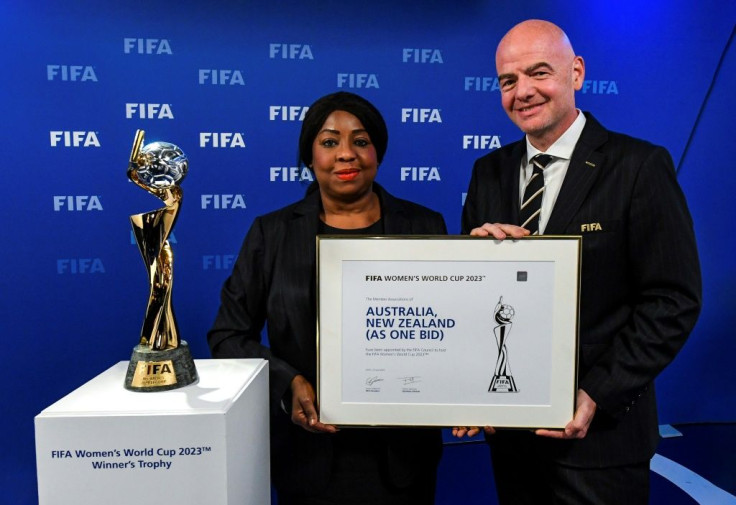'Historic' - Australia And New Zealand Chosen To Host 2023 Women's World Cup
Australia and New Zealand will host the 2023 women's World Cup after the countries' joint bid was chosen by FIFA on Thursday, with New Zealand's Prime Minister, Jacinda Ardern, promising "a historic tournament of firsts".
The overwhelming favourites beat their only remaining rival Colombia after Japan withdrew its own bid earlier in the week. Brazil, Argentina, South Africa and a joint Korean proposal had already fallen by the wayside.
The joint bid received 22 of the 35 valid votes cast by FIFA Council members in the first ballot. The Colombian Football Association obtained 13 votes, which included the backing of UEFA president Aleksander Ceferin and several European members.
The 2023 tournament is set to be the first 32-team women's World Cup, up from the 24 nations who competed at last year's finals in France, won by the United States.
It will be the ninth women's World Cup.
"It will be a historic tournament of firsts that will create a profound and enduring legacy for women's football in the Asia-Pacific region and beyond," Ardern said in a statement.

Australia's women's captain Sam Kerr posted footage on Twitter of her trademark tumbling backflip goal celebration and declared: "We did it, we freaking did it".
Her New Zealand counterpart Ali Riley tweeted a close-up selfie, with tears in her eyes and the caption: "I will never forget this moment".
The joint proposal by Australia and New Zealand will see games played in 13 venues across 12 cities in July and August 2023, with the opening match at Eden Park in Auckland and the final in Sydney.
Seven cities in Australia will host games, and five in New Zealand. Two stadiums will be used in Sydney. Four groups will be based in each country during the first phase.
Football Federation Australia chairman Chris Nikou said the tournament would be "groundbreaking in many ways" and that it would "unlock the huge potential for growth in women's football in the Asia-Pacific region".
Thursday's vote came at a video-conference meeting of the members of the FIFA Council as football, and global sport in general, struggles to get back on its feet in the midst of the coronavirus pandemic.

The Australia and New Zealand bid was given the highest score, of 4.1 out of five, in an evaluation by world football's governing body published earlier this month.
It was followed by Japan, on 3.9, but the Japanese bid was withdrawn on Monday, with the head of the country's football association, Kozo Tajima, noting that key support was moving towards Australia and New Zealand.
In addition, he admitted that Japan's focus was on hosting next year's Olympics in Tokyo.
FIFA's evaluation report gave Colombia a score of just 2.8 out of five as it raised doubts about the ability to provide investment required to carry out "necessary improvements" and also highlighted security worries in the South American country.
For New Zealand, the successful bid comes after the country already secured the rights to host the women's cricket and rugby World Cups next year.
Australia and New Zealand both already have considerable experience when it comes to hosting major international sporting events.
Australia hosted the men's Asian Cup in 2015, with New Zealand hosting the men's under-20 World Cup in the same year.
In addition, Australia has hosted the Summer Olympics twice, in Melbourne in 1956 and Sydney in 2000.
Both countries have recently hosted the men's Rugby World Cup having also jointly organised the first edition of that competition in 1987.
They also jointly staged the 1992 and 2015 Cricket World Cups.
Australia are seventh in the FIFA women's world rankings, but the Matildas have never been beyond the quarter-finals at the World Cup and lost on penalties to Norway in the last 16 last year.
New Zealand's "Football Ferns" have never been beyond the group stage and in 2023 will be hoping to win a game at the finals for the first time.





















